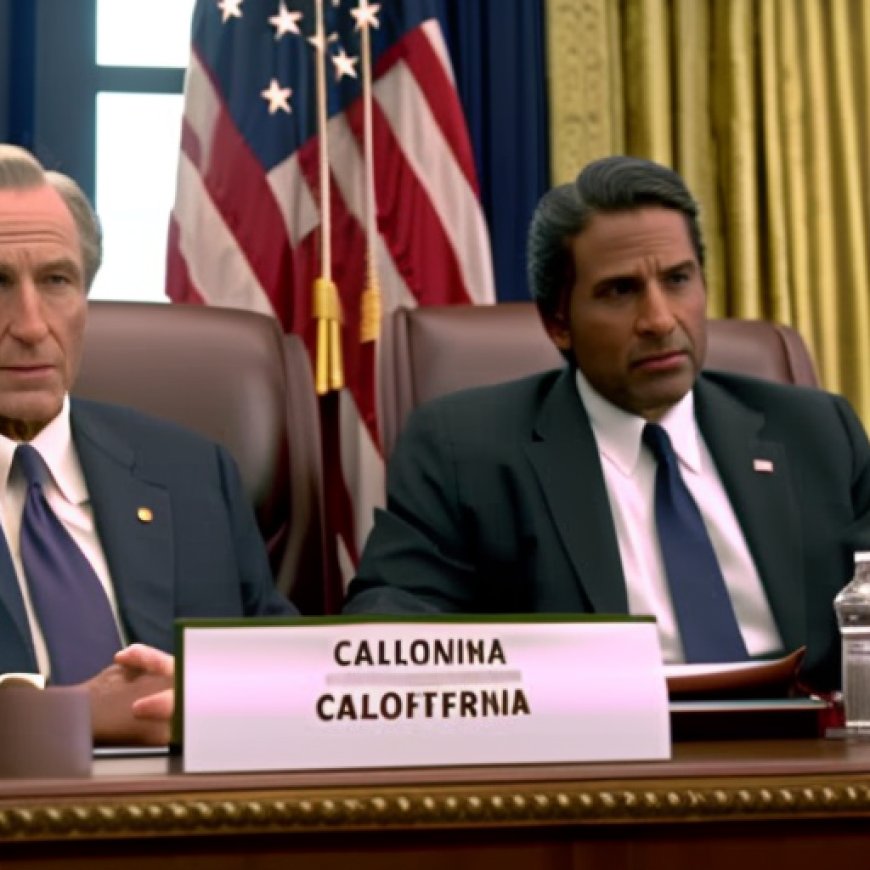California Senate Passes Bill to Affirm Local Choice on Oil, Gas Operations



Sustainable Development Goals (SDGs) and Local Control Over Oil and Gas Operations
Introduction
The California Senate has recently passed Assembly Bill 3233, which affirms the authority of local governments to protect their communities by limiting or banning oil and gas operations, methods, and locations. This bill, sponsored by the Center for Biological Diversity, aims to address the grave threats posed by these operations to public health, wildlife, and the climate. The bill has also passed the Assembly concurrence vote and is awaiting the final signature from the governor.
Local Control and Decision-Making
Assembly Bill 3233 recognizes the right of communities to make decisions regarding oil and gas projects in their own backyards. It emphasizes the importance of local control over such operations, empowering communities to protect their health and environment. This bill is a significant step forward in reaffirming local control over oil and gas development.
Support from Environmental Advocates
Hollin Kretzmann, an attorney at the Center for Biological Diversity’s Climate Law Institute, highlights the importance of this bill in taking on the influence of Big Oil. He commends lawmakers for providing local governments with the necessary tools to fight back against industry threats and intimidation. Dr. Laura Solorio, president of Protect Monterey County, also emphasizes the vital role of this bill in protecting democracy, as well as the health and environment of communities.
Challenges and Opposition
Communities like Monterey, San Benito, and Los Angeles have already taken steps to limit oil and gas operations. However, these local measures have faced strong opposition from the oil industry. In the case of Chevron U.S.A. Inc. v. County of Monterey, the California Supreme Court overturned parts of Monterey’s Measure Z, which aimed to phase out oil industry wastewater disposal and ban the drilling of new wells. The oil industry has used this decision to attack local ordinances that limit drilling, including those passed in Los Angeles.
Protecting Frontline Communities and the Environment
Assembly Bill 3233, also known as A.B. 3233, seeks to clarify that state statutes acknowledge and provide local authority to protect frontline communities and other residents from dangerous pollution, safety hazards, and greenhouse gas emissions caused by fossil fuel extraction. By empowering local governments, this bill aligns with the Sustainable Development Goals (SDGs) of the United Nations, particularly Goal 11 (Sustainable Cities and Communities) and Goal 13 (Climate Action).
SDGs, Targets and Indicators
| SDGs | Targets | Indicators |
|---|---|---|
| SDG 13: Climate Action | Target 13.2: Integrate climate change measures into national policies, strategies, and planning | Indicator not mentioned in the article |
| SDG 15: Life on Land | Target 15.1: Ensure the conservation, restoration, and sustainable use of terrestrial and inland freshwater ecosystems | Indicator not mentioned in the article |
| SDG 16: Peace, Justice, and Strong Institutions | Target 16.7: Ensure responsive, inclusive, participatory, and representative decision-making at all levels | Indicator not mentioned in the article |
1. Which SDGs are addressed or connected to the issues highlighted in the article?
SDG 13: Climate Action
The issues highlighted in the article are connected to SDG 13: Climate Action. The article discusses the need to protect communities from oil and gas operations that pose threats to public health, wildlife, and the climate. By affirming local governments’ authority to limit or ban such operations, the article aligns with the goal of taking action to combat climate change and its impacts.
SDG 15: Life on Land
The issues highlighted in the article are also connected to SDG 15: Life on Land. The article mentions the importance of protecting wildlife and the environment from the dangers of oil and gas operations. By empowering local communities to make decisions about these projects, the article supports the goal of ensuring the conservation, restoration, and sustainable use of terrestrial ecosystems.
SDG 16: Peace, Justice, and Strong Institutions
While not explicitly mentioned in the article, the issues discussed are also connected to SDG 16: Peace, Justice, and Strong Institutions. The article emphasizes the importance of local control and decision-making in protecting communities from industry threats and intimidation. This aligns with the goal of ensuring responsive, inclusive, participatory, and representative decision-making at all levels.
2. What specific targets under those SDGs can be identified based on the article’s content?
Target 13.2: Integrate climate change measures into national policies, strategies, and planning
The article highlights the need to protect communities from the climate impacts of oil and gas operations. By affirming local control over these operations, the article supports the target of integrating climate change measures into national policies, strategies, and planning.
Target 15.1: Ensure the conservation, restoration, and sustainable use of terrestrial and inland freshwater ecosystems
The article emphasizes the importance of protecting wildlife and the environment from the dangers of oil and gas operations. By empowering local communities to make decisions about these projects, the article supports the target of ensuring the conservation, restoration, and sustainable use of terrestrial and inland freshwater ecosystems.
Target 16.7: Ensure responsive, inclusive, participatory, and representative decision-making at all levels
The article highlights the importance of local control and decision-making in protecting communities from industry threats and intimidation. By affirming the right of communities to make decisions about oil and gas operations, the article supports the target of ensuring responsive, inclusive, participatory, and representative decision-making at all levels.
3. Are there any indicators mentioned or implied in the article that can be used to measure progress towards the identified targets?
There are no specific indicators mentioned or implied in the article that can be used to measure progress towards the identified targets. The article focuses more on the issues and the actions taken to address them, rather than providing specific indicators for measuring progress.
Source: biologicaldiversity.org








